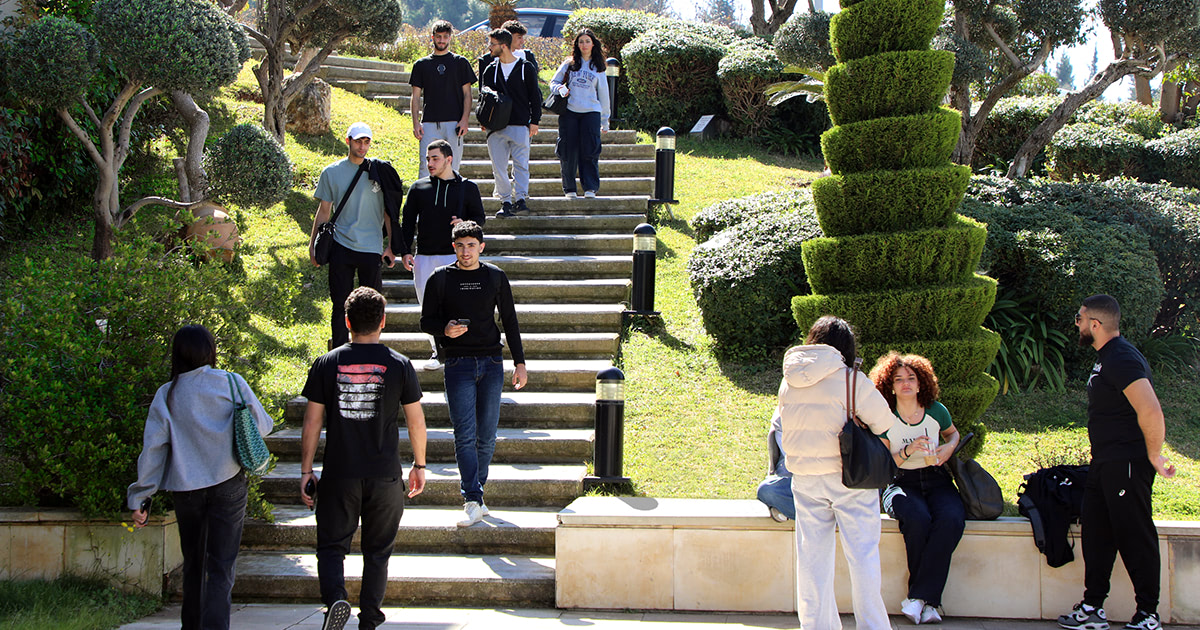LAU Stands Out on the Sustainability Scores
The most recent Times Higher Education Impact Rankings report confirms the university’s leadership across several sustainability indicators.
LAU has achieved a major sustainability milestone with its recent performance in the Times Higher Education (THE) Impact Rankings 2025. The university was ranked in the 101–200 bracket worldwide, marking a significant leap from last year’s placement in the 401–600 range, and tied for No. 1 nationwide with Université Saint Esprit de Kaslik (USEK).
“This accomplishment,” said LAU President Chaouki T. Abdallah, “reflects LAU’s commitment to the UN Sustainable Development Goals (SDGs), as we continue to align our operations to deliver on the SDGs and make deliberate efforts to expand our impact through how we serve in our country.” In this regard, the university took the pioneering initiative to establish the Office for Sustainability last year.
Notably, LAU has excelled in several key SDGs.
One standout result is its ranking in fifth position globally for SDG 1: No Poverty, thanks to its generous financial aid and scholarship offerings, with a vast majority of the LAU student body receiving at least one form of aid. In terms of ranking methodology, the proportion of students on financial aid constitutes 27 percent of a university’s score on this SDG.
LAU also secured the 13th rank worldwide for SDG 8: Decent Work and Economic Growth, illustrating its strong economic impact and responsible employment practices. Invested in fostering a sustainable workforce, LAU has been diligent in providing fair wages, promoting and adhering to anti-discrimination policies, publishing research on economic growth, and enhancing students’ employability.
“LAU’s full-time faculty plays a pivotal role in advancing our sustainability agenda through their dedicated research,” affirmed Dean of Graduate Studies and Research Samer Saab, noting that LAU faculty and student researchers are actively engaged in studies that contribute significantly to various SDGs, particularly No Poverty, Economic Growth, Clean Water, and Gender Equality. “This impactful research underscores our commitment to tackling critical global challenges and fostering a sustainable future,” he added.
The university’s global rankings in SDG 6—Clean Water and Sanitation—(28th position), and SDG 4—Gender Equality—(93rd position), further demonstrate its holistic approach to addressing these two critical international challenges. Through various initiatives, such as harvesting rainwater and recycling grey water, the university has significantly reduced its water consumption.
On the gender front, LAU’s Arab Institute for Women, together with the Title IX Office, had produced landmark policies, such as the parental leave and the gender equity plan. It has also implemented a gender audit as part of a project designed to advance gender equality, diversity, and inclusion within universities and relaunched a database featuring remarkable women in Lebanon. Most recently, AiW organized TEDxLAUWomen and produced two plays on visionaries and pioneering women in gender rights and humanitarian causes.
Last but not least, LAU’s exceptional 6th-place global ranking in SDG 17: Partnership for the Goals highlights its proactive and creative approach to building collaborations and driving meaningful change. By leveraging its local and international partnerships, the university is actively seeking to amplify its impact and advance the SDGs on a global scale.
It is worth noting that THE Impact Rankings measure how universities support the SDGs across four vital areas: good stewardship, in terms of managing resources responsibly; outreach; teaching, especially in educating students on sustainability; and research on topics such as poverty and clean energy. The combined score on SDG 17 is weighted at 22 percent, while their top three scores from the other 16 SDGs account for a coefficient of 26 percent, each.
“LAU has demonstrated a consistent upward trajectory in growing its institutional impact and securing momentum on several sustainability fronts in recent years,” declared Chief Sustainability Officer Nadim Farajalla. This resolve, he added, is reflected in the university’s adherence to the principle of practicing what it preaches on issues related to the SDGs on all levels—administrative, pedagogical, research and operations. “Such a commitment has expanded the university’s footprint and rightfully earned LAU its spot among the world’s top 200 this year.”
For Provost George E. Nasr, “LAU’s outstanding performance in the THE Impact Rankings truly showcases the university’s deep commitment to the UN SDGs.” By reinforcing their integration into program curricula, he added, “we are ensuring that our students are not only aware of global challenges but are also equipped with the knowledge and skills to drive sustainable solutions in their respective fields.”
